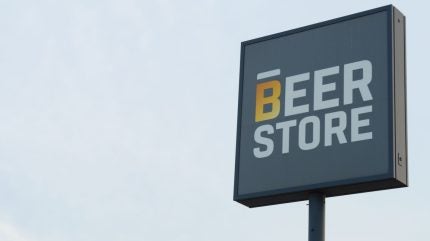
The Ontario government in Canada has revealed plans to expand the alcoholic beverages marketplace 16 months earlier than initially planned.
Starting on 1 August 2024, Ontarian consumers will be able to purchase new products, including coolers and RTD beverages, alongside more pack sizes at grocery stores that currently sell wine or beer.
Shortly after, new retailers will be able to sell an increased selection of local, domestic and international alcohol products “in a safe and responsible manner”, a government statement said.
By the end of October 2024, “every convenience, grocery and big-box store in Ontario will be able to sell beer, cider, wine and ready-to-drink alcoholic beverages if they choose to do so”.
Ontario premier, Doug Ford, said: “We are delivering on our commitment to give consumers in Ontario the choice and convenience every other Canadian enjoys and we’re doing so even sooner than we had originally promised.
“In the coming weeks and months, people in Ontario, like many Canadians across the country, will have the option to responsibly and conveniently purchase a case of beer or a bottle of wine on their way up to the cottage or to a summer barbecue, all while having even more opportunity to support local Ontario breweries and wineries.”
As a result of the move, the province expects to bring 8,500 new venues where consumers can purchase low-alcohol products.
The province is set to pay up C$225m ($165m) to The Beer Store, which currently has a quasi-monopoly on the distribution and sale of beer in Ontario.
The Beer Store will remain the primary wholesale distributor of beer in Ontario, and will run the province’s recycling program, until 2031. Starting in 2026, any retail location that sells alcohol with more than 4,000 square feet of retail space will need to accept empty containers, according to the statement.
Meanwhile, the LCBO (Liquor Control Board of Ontario) will continue to be the only retailer that sells high-alcohol spirits like vodka, gin and whisk(e)y.
A statement from LCBO responding to the announcement said: “We will engage with existing licensed grocers, as well as our trade partners on how we will operationalize these changes.
“We will also work closely with the Alcohol and Gaming Commission of Ontario (AGCO) to onboard new convenience stores and grocers and support their journey to become a responsible private retailer of beverage alcohol.
“As an organisation, we continue to take steps to establish the foundation for this new marketplace. This includes ensuring the right supports are in place to help new and existing customers and the optimal warehouse approach to meet demand.”
Earlier this month, the LCBO hit back at claims from a major Canadian spirits industry trade body over it “squeezing suppliers” for profit.
Spirits Canada, an industry association with Diageo and Brown-Forman among its members, said LCBO was “abusing” its “market dominance” after distillers were hit with a “retroactive tax bill”.
Just Drinks contacted Spirits Canada for comment on the planned expansion of Ontario’s alcohol marketplace.



